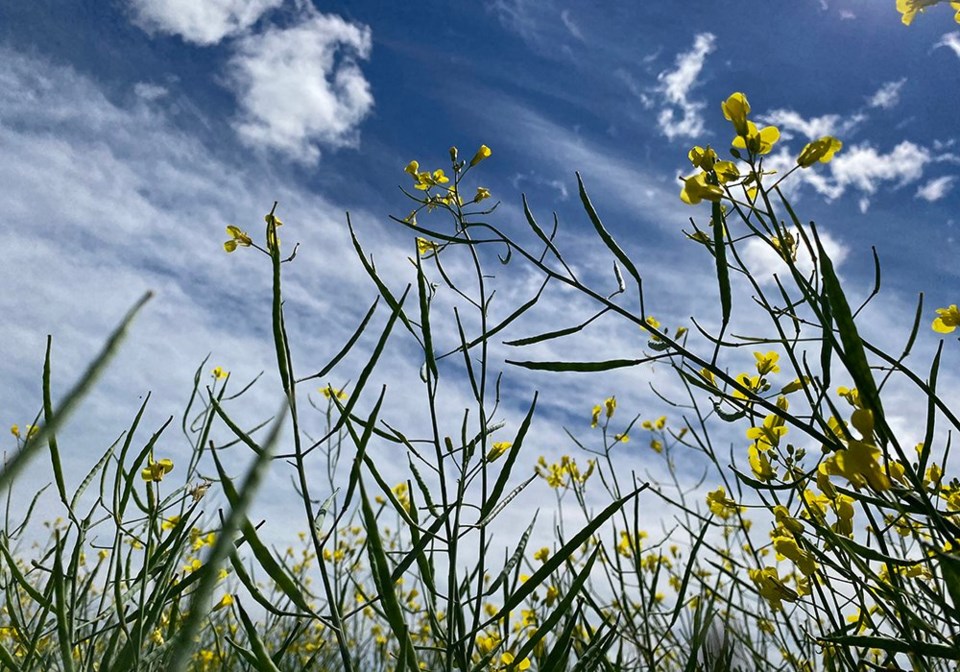WESTERN PRODUCER — BASF plans to use a different seed treatment on its InVigor canola seed in response to poor emergence by some of the company’s hybrids.
Last spring, BASF received complaints about poor emergence of its canola hybrids in some regions so it investigated.
“We put the team together to try and pinpoint what the contributing factors we believe were involved. I used the plural version of factors because I think certainly environmental conditions, and then any other biological dynamic when you put a seed in the ground and a seed treatment on it. So, all of those things were being considered,” said Brent Collins, head of seeds and traits for BASF Canada.
The team reproduced the problem in greenhouse and field conditions that was observed by some growers in Western Canada.
Collins said data is being gathered and the issue is still being investigated, but the company plans to change the core seed treatment package for InVigor, as a cautionary move.
“We’re going to move to Helix Vibrance as the core seed treatment package and we’re going to take that to the market in 2023. In parallel with that, we’re going to continue to do our investigative work to make sure that we make the correct diagnosis in terms of what we believe are the factors and what were the triggers for those factors,” Collins said.
Helix Vibrance is a Syngenta seed treatment that has four fungicides, an insecticide that provides broad-spectrum pest protection. It is also designed to produce vigorous emergence and healthier root systems.
Last year, BASF launched its Vercoras seed treatment for canola seed that offered protection from seed and soil-borne diseases like blackleg, as well as baseline protection against flea beetles.
BASF has not decided if Vercoras will be available for spring of 2023 because it’s still investigating the emergence problems with InVigor hybrids.
“This situation that we experienced in those select areas was clearly not only unanticipated but unusual for InVigor,” Collins said.
“During the development when we launched seed or we launched a new seed treatment or anything, you know, these things are tested intensively, and this was not observed. So, this really defied what we were expecting to see.”
BASF has also changed the optional seed treatment available.
“On the insecticidal side, we will continue to offer Lumiderm in combination within InVigor for cutworm and flea beetle protection, but for the first time we’re also making Buteo Start available as an optional treatment for InVigor,” Collins said.
Buteo Start is Group 4 product by Bayer with Flupyradifurone as the active ingredient.
Through its investigation into the reported InVigor canola problems, BASF did not suspect that low germination or vigour caused the emergence problems, in part because the company has results from multiple tests it conducted.
The symptoms in the affected plants also didn’t suggest seed vigour or germination were the cause.
“We were seeing some yellowing of the margins on the cotyledons and in some cases the eventual necrosis of the cotyledons. So that was more where we saw the plants come up and then stay relatively stagnant for a few days,” Collins said.
“We have to keep in mind the 2022 growing conditions, I would say were unique in a lot of areas, where environmental conditions were such that that canola establishment was slowed. But where we saw these symptoms on the cotyledons, those are the ones that we can attach back to the issue that we’re trying to overcome at the moment.”
When asked, Collins wouldn’t say how many farms were affected by emergence problems, but he said the problem occurred on a low percentage of the total number of InVigor acres planted this year.
He said BASF is working to resolve the claims and the company has been in contact with each farmer who has reported the issue.
Mike Shewchuck, a seed grower near Blaine Lake, Sask., and president of the Saskatchewan Seed Growers Association, said the InVigor hybrids he planted this year suffered from poor emergence.
He said BASF could have been more considerate in how it investigated the issue.
He said he was recently contacted by AgCall, which was contracted by BASF to investigate.
“We got an email from AgCall and it basically said to submit all the fields with 56 pieces of information per field within 48 hours or the claim will be invalidated. I submitted the original claim two months ago,” Shewchuk said.
He said this could have been handled better because harvest was just getting going, and that it was a “crap load of information” to gather for about 30 fields within 48 hours.
When asked about Shewchuk’s concerns over this tight timeframe to submit the information for his claims, AgCall deferred to BASF.
Collins said there were several files that did not contain the full complement of parameters that needed to be documented before claims could be settled.
“I believe that AgCall reached out to source that information because the objective here is to really facilitate as quickly as we can a resolution or a solution. So, growers would have been encouraged to provide that feedback so that we can get to a solution for them as quick as possible,” Collins said.
“However, if they were not able to meet, say if it’s 48 hours you cited here, that would not constitute a product inquiry being removed or invalidated.”
Contact [email protected]




